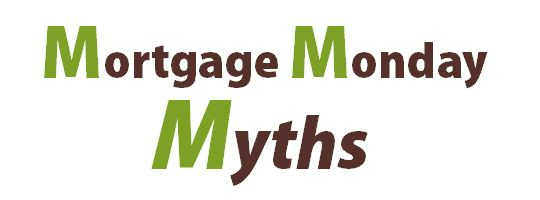There are approaching 3 million self-employed people in Canada – that’s almost 10% of the country! But obviously, with around 70% of Canadians owning their own home, there has to be a way for those of us that are self-employed to obtain a mortgage, right?
Mortgage Monday Myth #2: Self-employed = no mortgage.
It’s true that not every bank and lender make it particularly easy for self-employed individuals (usually referred to as BFS – business-for-self – in this industry for some reason or another) to qualify for a mortgage, but with a growing segment of the Canadian population becoming self-employed, it’s a lot easier than it used to be. In fact, in most cases, it’s pretty straight forward. Sometimes lenders may request a little extra documentation (like income tax statements, notice of assessments from previous tax years, etc) or have you provide some proof that you’re actually self-employed and have been for at least 2 years (like incorporation papers, HST number, etc). Lenders will typically be a little more strict with your credit history (usually no bankruptcies or foreclosures), but as long as your credit history is pretty clean, there should be no problems.
In fact, CMHC (the Canada Mortgage and Housing Corporation) recently opened the door to more self-employed homebuyers in Canada by making it a lot easier to obtain mortgage loan insurance required for hi-ratio mortgages (mortgages with less than 20% equity) with a program called “Self-Employed Simplified.”
[quote]“Self-Employed Simplified, will make it easier for certain self-employed borrowers to obtain mortgage loan insurance and, as a result, benefit from competitive interest rates. This product enhancement will help self-employed borrowers and commissioned salespersons to obtain a CMHC-insured mortgage, much like borrowers who receive a salary or hourly wage from an employer.”
~ Pierre Serré – CMHC’s Vice-President[/quote]
While there may be a couple of extra hoops you need to jump through, you can bet if CMHC will insure the mortgage, there are lenders who will lend the money – you’ll just need to be prepared to get some additional documentation together (your mortgage broker will let you know what the lender will require) and prove you’re actually self-employed with some income. It may seem like a little more work, but a good mortgage broker will walk you through it every step of the way.

Tim,
What about self employed individuals who earn a good living but show very little income come tax time because of write offs, income splitting with a spouse/partner etc.?
I’ve had a number of clients who make “x” but only show “y” after their accountant is done.
That’s very common, actually. There are several lenders that understand that self-employed persons try to have a lower income on paper for tax purposes and take that into account when approving the mortgage. The deals are usually referred to as “stated income.”
So say you’re a contractor who “actually” makes $100k/year, but because of write-offs/etc, your income tax shows that you only make $35k/year, there are lenders who will allow you to state that you make $100k/year as use a number close to that for approval purposes. The key is, that “stated income” has to be reasonable. So if you’re a baby-sitter who tries to use $150k/year as stated income, it probably won’t fly. But if you’re a plumber or something, $150k/year might be considered reasonable.
It does all come down to a case-by-case basis, but there are certainly lenders who understand that actual income and income on paper can be significantly different. 😉
I would have to agree.
There are lenders who will lend the money – you will just need to be prepared to get some additional documentation together.
(your mortgage broker will let you know what the lender will require)
to prove you’re actually self-employed with some income.
It may seem like a little more work, but a good mortgage broker will walk you through it every step of the way.